Table of Contents
10 Worst Colleges for Free Speech: 2021

This year, the Foundation for Individual Rights in Education is releasing its 10th list of the “worst colleges for free speech.” Since our first list in 2011, more than 70 institutions in 31 states have found themselves named and shamed for actively working to shut down student and faculty speech rights.
Each year, hundreds of students and faculty members come to FIRE for help when their individual rights are threatened. Many of these cases are quietly resolved. Many more are resolved not so quietly. But the cases you’ll read about below are the ones that went kicking and screaming right onto this list.
And it’s not easy to get on these lists. The colleges you’ll read about below had to work really hard. They went out of their way to threaten student journalists, dismiss professors for protected speech, render a student homeless during a pandemic for his speech, and refuse club recognition for groups just because of their viewpoint.
For some of these institutions, their place on this list was years in the making. That’s why we’ve given special recognition to one institution, Syracuse University, which receives our Lifetime Censorship Award. The award recognizes almost herculean efforts in shredding student rights. Only two other institutions — DePaul University and Rensselaer Polytechnic Institute — have earned this award.
As in previous years, FIRE’s 2021 worst-of-the-worst list is presented in no particular order, and both public and private colleges are featured. Public colleges and universities are bound by the First Amendment. Private colleges on this list are not constitutionally required to respect student and faculty speech rights, but explicitly promise to do so.
FIRE is (not so) proud to present the 2021 edition of the worst colleges for free speech.
University of Tennessee (UT Health Science Center, Memphis, Tenn.)

Administrators move to expel pharmacy student for sex-positive social media posts, pitching a remix to Cardi B.
Kimberly Diei, a second-year doctoral student at the University of Tennessee Health Science Center College of Pharmacy, has twice been investigated by her program’s Professional Conduct Committee because of allegations that her personal social media activity was too “sexual.”
Diei enjoys commenting on topics of interest to her and other young, black social media users, occasionally using profanity and freely expressing her views about sexuality. (In one tweet singled out by the college, Diei contributed to a trending discussion about the song “WAP” by Cardi B and Megan Thee Stallion, suggesting lyrics for a possible remix.) But what a young woman says about sex on social media has nothing to do with her ability to be a pharmacist.
“I can be a successful and professional pharmacist as well as a strong woman that embraces her sexuality,” said Diei, who is seeking her doctorate in pharmacy with an emphasis on nuclear pharmacy. “The two are not mutually exclusive.”
Although Diei does not identify herself as a student at the College of Pharmacy or indicate any association with the university in her posts, the committee alleged that her posts violated the college’s “professionalism” standards. Diei asked the college multiple times to identify which policies she allegedly violated, but to this day the college has failed to point to a single specific policy.
The committee’s first investigation in September 2019 concluded that Diei’s posts violated the College of Pharmacy’s professionalism policies because they were “crude,” “vulgar,” and “sexual,” and the committee ordered her to write a letter reflecting on her behavior. Then, in August 2020, after a second investigation, the committee again found that Diei’s social media posts were in violation of some policy that they still could not identify — this time voting to expel her. The expulsion was overturned after FIRE intervened.
On Feb. 3, Diei — represented by FIRE — sued university officials, challenging the College of Pharmacy’s vague professionalism policies as well as the university’s disciplinary actions against her for her constitutionally-protected expression. Diei’s case is an egregious example of colleges and universities disciplining students for their personal, online expression that has nothing to do with their education or future profession.
St. John’s University (Queens, N.Y.)
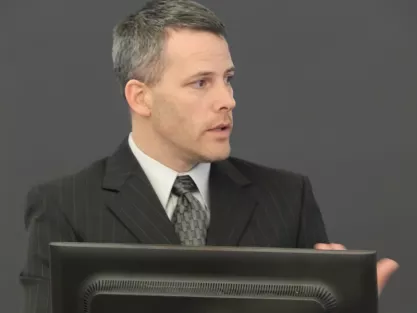
A professor is banned from the classroom for asking history students a question about… history.
In October, St. John’s removed adjunct professor Richard Taylor from the classroom indefinitely after finding him in violation of the school’s anti-bias policy, without either showing him the evidence against him or providing him an opportunity to appeal.
Why, you ask? Because he asked his history students to consider whether transatlantic trade had any positive effects on biodiversity. And how does that violate the school’s bias policy? St. John’s won’t explain its rationale or share the evidence it used to reach that conclusion, except to say it got one complaint from an actual student in the class and 300 form letters from a student group calling for him to be fired.
The form letters accuse Taylor of asking students to justify slavery. (He didn’t.) Taylor taught a series of classes on the Colombian Exchange, the term used to describe the biological effects of plant and animal species due to the transoceanic voyages of the 15th and 16th centuries. The last slide of his presentation asked students to consider: “Do the positives justify the negatives?” When one student objected that slavery could never be justified, Taylor clarified that no one is justifying slavery and asked students to consider global trade as a whole, including lives lost to disease and lives saved from famine.
FIRE wrote to St. John’s on Oct. 8 and hasn’t heard back. I guess they might be busy: That month, the same student group that targeted Taylor with form letters subsequently called for the administrator overseeing Taylor’s case to be fired for unrelated reasons, and the university’s administration responded — by opening an investigation into the student group.
If anyone at St. John’s isn’t investigated or punished in 2021, we’ll keep you updated. In the meantime, Taylor has filed a lawsuit against the college, seeking to return to teaching.
Collin College (McKinney, Texas)
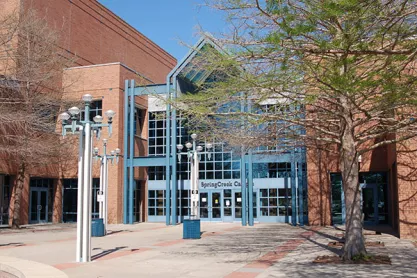
Collin College spends its money and time preening its public image and targeting faculty union organizers rather than protecting faculty rights.
While watching the vice presidential debate between then-Vice President Mike Pence and then-Sen. Kamala Harris, Collin College history professor Lora Burnett publicly criticized Pence, tweeting that the “moderator needs to talk over Mike Pence until he shuts his little demon mouth up.” Burnett’s tweets were included in a conservative media outlet’s roundup.
In response, the community college issued a public statement condemning her tweets, stating that they “may” be protected by the First Amendment. But privately, the college’s president wrote to faculty members that Burnett’s tweets attracted the attention of elected officials and others, most calling for Burnett’s termination. Collin College also said “execution of personnel policies will not be played out in a public manner,” implying that Burnett could be punished for her protected extramural speech.
The following day, Burnett received a written warning concerning her use of the college’s email address to respond to critics. (This warning does not comport with the college district’s policy, which allows faculty to use their emails for incidental personal use.)
FIRE wrote to Collin College, calling for the college to affirm that Burnett’s tweets are protected by the First Amendment and rescind its written warning. The college’s response raised, for no apparent reason, the length of Burnett’s contract, implying that Collin College might not renew that contract. FIRE wrote again, renewing our request that the college affirm Burnett’s comments are protected speech and refrain from retaliating against Burnett — including by refusing to renew her contract — for her speech.
Burnett wasn’t alone. In January, Collin College’s senior leadership overturned a committee’s recommendation that the college renew the contracts of two faculty members, Audra Heaslip and Suzanne Jones — coincidentally, two of the three officers of a newly-formed chapter of the Texas Faculty Association, a non-bargaining faculty union. Both Heaslip and Jones had criticized the college’s handling of COVID-19 (a pandemic that district president H. Neil Matkin shrugged off in August as “blown utterly out of proportion”). In cutting ties with Heaslip and Jones, administrators cited their perceived lack of support for the administration’s approach to the pandemic. Jones was also faulted for her signature on a 2017 petition calling for the removal of Confederate memorials (signed as “Suzanne Jones, education professor, Collin College”) and because the Texas Faculty Association’s website referenced the college’s name.
Haskell Indian Nations University (Lawrence, Kan.)
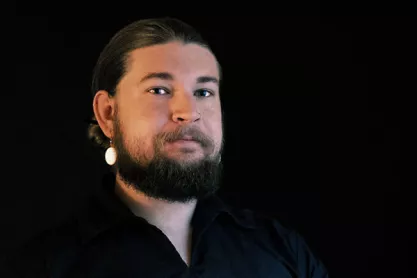
HINU kicks a student out of university housing for his speech and threatens a student journalist with discipline for simply doing his job.
On April 8, Haskell Indian Nations University, which is operated by the federal government, kicked student Russell Parker out of university housing … in the midst of the pandemic and during a statewide stay-at-home order.
Parker was forced to sleep in his car after he called a HINU staffer an asshole and said he was “on a power trip” for threatening to tow Parker’s car if he did not leave an area of campus on which Parker was golfing. HINU characterized Parker’s response as “threatening a federal employee” and suspended him.
Parker immediately requested a hearing, but HINU refused to schedule one. FIRE called on HINU to grant Parker his due process right to a prompt hearing where he could contest the charges against him. In response, an administrator inadvertently copied FIRE on an email advising colleagues to ignore the letter and predicting the story would go public. (After HINU showed a callous disregard for student rights, we were happy to oblige.)
Then, on Oct. 16, HINU President Ronald Graham issued a flatly unconstitutional directive to student journalist Jared Nally, the editor-in-chief of the student newspaper, The Indian Leader. The directive ordered Nally not to criticize members of the HINU community or engage in routine newsgathering activities, such as requesting information from government agencies and recording interviews, under threat of discipline.
HINU also stonewalled Nally and The Leader’s request to approve its plan of operations for the 2020–2021 academic year. Without recognition, The Leader could not access some of its funds or get its choice of adviser approved.
FIRE, the Student Press Law Center, and the Native American Journalists Association wrote to HINU on Oct. 26, calling on Graham to rescind the directive and to ensure that The Leader was recognized.
Nally and The Leader continued to operate under the spectre of this unconstitutional directive until Jan. 13, when counsel for HINU clarified that Graham had rescinded the directive in an undated letter to Nally. In the letter, Graham also asserts that he instructed his staff not to interfere with the expressive rights of The Leader or HINU students.
According to HINU, this letter should have been sent on Nov. 20 — which, notably, is still nearly a month after FIRE’s initial letter. Their explanation for this nearly three month delay: an “administrative error.”
FIRE, the SPLC, and NAJA wrote HINU again on Jan. 19 to criticize this inexcusable delay and ask the university to revise its policies to better protect students’ rights. That same day, FIRE sent a complaint to the Department of Education expressing concerns about the state of free expression at HINU.
New York University (New York, N.Y.)
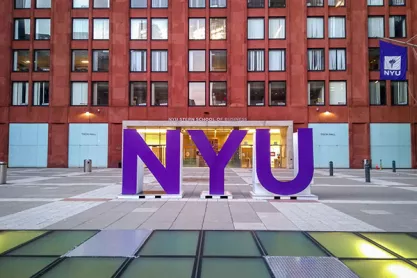
As a global pandemic spread rapidly, New York University warns its medical faculty to keep quiet — or else!
New York University bills itself as a “private university in the public service.” But as the horror of COVID-19 descended upon New York last March, NYU chose to keep the public in the dark.
On March 27, the NYU Grossman School of Medicine and NYU Langone Health sent a stark warning to faculty doctors: Keep silent about the shocking impact of the novel coronavirus, or risk punishment. Per the gag order, NYU medical faculty were required to receive advance permission from the Office of Communications and Marketing prior to speaking with reporters about the life-and-death decisions they were being forced to make as a medical emergency overwhelmed their city.
FIRE has long warned that imposing prior restraints on faculty is sharply at odds with basic tenets of expressive rights and academic freedom — and that’s especially true when disaster strikes. Medical faculty are particularly well positioned to play an important role in educating their peers, their fellow New Yorkers, and Americans nationwide about the deadly effects of COVID-19. Instead of celebrating this public service, NYU told its faculty to keep quiet.
In an urgent March 31 letter to NYU, we made clear that “FIRE deeply respects the lifesaving work performed daily at NYU Langone under unimaginable pressure.” But precisely “because of the immense challenges of the current moment,” we wrote, “we object to NYU’s decision to threaten faculty with disciplinary action, including termination, for speaking with the press and conveying information about COVID-19’s impact that Americans may desperately need to hear.”
FIRE wasn’t alone in expressing our grave concern about muzzling medical faculty and practitioners. A broad coalition of medical, research, and civil liberties organizations also called on the American Hospital Association to denounce gag orders on health care workers. Medical school faculty members were not the only essential employees whose expressive rights were curbed as institutions’ handling of the pandemic came under the microscope. More on that in a minute.
Duquesne University (Pittsburgh, Pa.)

Duquesne promises academic freedom and free speech but fired a professor when it faced public pressure.
This fall, Duquesne University suspended and later terminated professor Gary Shank for saying the N-word during a pedagogically-relevant class discussion about why it’s inappropriate to use the word.
After one of Shank’s students posted a video to Twitter showing Shank teaching his educational psychology class that the N-word was inappropriate to use and giving a student permission to use the word during the discussion, Duquesne abandoned its promises of academic freedom and free expression and punished Shank. First, the School of Education dean told students in Shank’s class that the incident was “being taken very seriously,” and then Duquesne’s president said Shank “went too far” and placed him on administrative leave.
In turn, FIRE reminded Duquesne administrators of the university’s academic freedom and free speech promises and called on the university to reverse its suspension and investigation into Shank. FIRE also reminded Duquesne that decades of legal precedent prevent even private universities from breaking their promises to students and faculty.
After not responding to FIRE’s letter, Duquesne terminated Shank for his pedagogically-relevant use of the N-word. Earlier this month, Duquesne decreed that Shank can return to the classroom — but only after a seven-month suspension without pay, mandatory training, and other measures. But the university’s effort to fire Shank in the first place showed, yet again, that the university’s promises cannot be relied upon.
Duquesne’s blatant disregard for its promises cannot be ignored, so FIRE sent a letter to the Department of Education expressing concern for the state of free expression at Duquesne. And Shank retained an attorney to continue fighting for student and faculty rights.
Frostburg State University (Frostburg, Md.)

Looking to silence criticism related to its handling of COVID-19, Frostburg muzzles resident assistants and a student journalist.
Speak to the media about how Frostburg State is handling the COVID-19 pandemic, and it could affect your employment. That’s what administrators at the Maryland university told resident assistants, according to the student newspaper, The Bottom Line. In an email to RAs, an administrator warned, “[i]n the real world, if you bad mouth your employer you could lose your job.”
After FIRE wrote to FSU on Nov. 13 to remind administrators that, unlike most employers, FSU is a public entity and thus is legally obligated to respect its employees’ First Amendment rights, the university clarified: It won’t fire a student employee just for exercising their free expression. (Could criticizing the university to the media still be on the table as a contributing reason for discipline? Unfortunately, it appears so.)
Not satisfied with just silencing RAs, a week later, when The Baltimore Sun cited student reporter Cassie Conklin’s critical reporting on the university’s pandemic response, FSU cooked up a bogus claim against her. Despite video evidence to the contrary, FSU accused Conklin of harassment. The university also demanded The Bottom Line investigate Conklin and report its findings to administrators — a clear violation of the publication’s editorial independence.
FIRE and the Student Press Law Center wrote to FSU on Dec. 14, calling on the university to drop its nefarious investigation against Conklin and clarify that The Bottom Line is an independent student publication, not subject to any administrative demands. The university responded the following day, letting us know that Conklin would not be subject to further investigation or punishment. However, with the university’s unfortunate track record, serious concerns about freedom of speech and of the press at FSU remain.
Northwestern University in Qatar (Doha, Qatar)
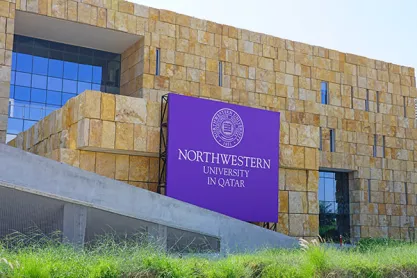
Northwestern cancels an event featuring a gay musician because it violates Qatar’s ‘cultural and social customs.’
Only two years ago, Georgetown University’s satellite campus in Qatar earned a spot on FIRE’s 10 worst list for canceling a debate about religion that appeared to run afoul of the country’s blasphemy laws. Now, Northwestern University in Qatar joins Georgetown on the list.
In early February 2020, NU-Q announced the cancellation of an event on “media revolutions in the Middle East” featuring Lebanese indie rock band Mashrou’ Leila, whose lead singer is openly gay. Northwestern’s Director of Media Relations Jon Yates cited an “abundance of caution due to several factors, including safety concerns for the band and [the] community.” According to Reuters, “[c]ritics used an Arabic hashtag on Twitter to demand the event be canceled, with some accusing Mashrou’ Leila and Northwestern of spreading views that are against Qatari and Islamic values.”
Yates confirmed that the event would be held at Northwestern’s U.S. campus instead, and reaffirmed both campuses’ commitments to academic freedom and free expression. But that wasn’t the end of the story. The Qatar Foundation, “a state-linked non-profit body” and partner of NU-Q, issued a statement about the cancellation disputing NU-Q’s account. The foundation claimed that it did “not have any safety or security concerns,” and that the event was cancelled because “it patently did not correlate” with “the context of Qatari laws as well as the country’s cultural and social customs.”
The takeaway is this: Students who attend satellite campuses abroad should know that their campuses’ promises of free expression may come with an asterisk.
University of Illinois Chicago
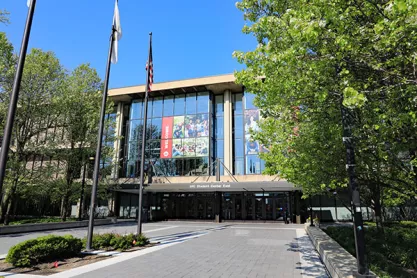
A law professor is investigated because his exam question contained censored references to slurs in the fact pattern.
While there are lots of examples of professors getting targeted for saying racial slurs in class discussions, the University of Illinois Chicago manages to stand out by engaging in an investigation of a professor who carefully avoided using slurs in a context where they were important to the pedagogical purpose.
Professor Jason Kilborn asked an exam question in his civil procedure class involving a hypothetical situation where, among other things, a woman accused her former employer of discrimination. In the question, it includes the fact that the person says they were called — and this is verbatim — “a ‘n____’ and ‘b____’ (profane expressions for African Americans and women).”
Yes, the words were censored on the actual exam, too. For this, a student petition accused him of using “dark and vile verbiage” and “racist content,” and the dean called the references “deeply offensive.”
Facts are the lifeblood of legal analysis, so much so that trying to run a law school without specific fact patterns in hypothetical exercises is like trying to run a medical school without diagnostic tests. That’s why law schools use elaborate hypothetical fact patterns in the first place. That’s why every time you ask a lawyer an abstract question, they answer: “It depends.” Things like the specific words being used are what discrimination law “depends” on.
Law professors have long predicted they would face pushback and potential punishments for teaching the law of sensitive topics. In 2014, Harvard Law School’s Jeannie Suk Gersen wrote about how sensitivity over sexual assault led many criminal law professors drop the subject entirely. She noted that, ultimately, victims would be the ones to suffer if lawyers weren’t trained in the law because professors felt it was too risky to teach.
Suk Gersen’s fear has been given horrifying shape by UIC. Kilborn obliquely identified the slurs without using them; a student said she had “heart palpitations,” more called for his punishment, and the school opened an investigation. UIC has functionally chilled the ability of its professors to teach the tough subjects. And as Suk Gersen noted, the people who will ultimately be hurt here are the victims of discrimination.
Kilborn’s exam remains “under investigation.”
Fordham University (New York, N.Y.)
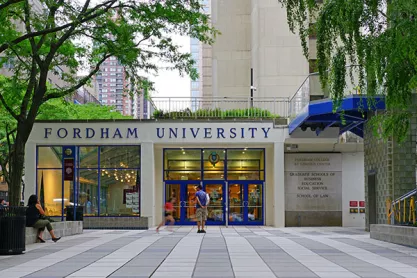
Fordham censors Students for Justice in Palestine with one hand and a pro-Second Amendment student with the other.
Fordham University managed to find itself in courtrooms arguing against student rights in not one but two unrelated cases this year. Either one would have earned it a spot on this list. To be involved in both is almost a triumph, especially after earning a place on the 2017 list for one of them.
The new case involves the suspension of student Austin Tong for two Instagram posts. One post shows him holding his legally-owned rifle off campus, with a caption memorializing the Tiananmen Square massacre (Tong immigrated to America from China when he was 6). The other post laments the “nonchalant societal reaction” to retired St. Louis Police Captain David Dorn’s death. Tong sued. His case was dismissed.
In a court filing, Fordham stated that when it “guarantees the freedom of inquiry” and says students have “a right to freely express their positions,” it actually means it has the “prerogative to limit a student’s free expression rights.” Since that’s not what those words mean when they’re in that order, another way to put it is: Fordham is lying.
The ongoing case — the one that earned Fordham a spot on the 2017 list — is Fordham’s refusal to recognize a chapter of Students for Justice in Palestine. Dean of Students Keith Eldredge wrote that the group could not be recognized because its “sole purpose is advocating political goals of a specific group.”
In 2019, SJP won a court order requiring Fordham to recognize the organization, after a judge found that Fordham had arbitrarily deviated from this approval policy. But Fordham appealed. In December, the appellate court reversed the trial court ruling, finding that Fordham’s eleventh-hour rug-pull was an exercise of its “honest discretion.”
That decision is being appealed, but either way, that Fordham has spent four years now trying to avoid having students advocate for Palestinian rights easily makes New York City’s Jesuit institution one of the worst colleges for free speech. As the Fordham Observer, one of Fordham’s student newspapers, recently put it, Fordham’s flagrant willingness to ignore its promises means the university’s administration “will suppress those student voices that are unsuitable for the image it wants to project.”
Lifetime Censorship Award:
Syracuse University (Syracuse, N.Y.)
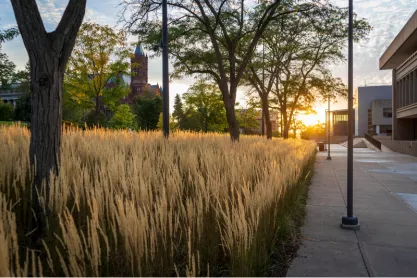
The latest chapter of Syracuse’s dark history of censorship involves punishing a professor for writing ‘Wuhan Flu’ on his syllabus.
Just over 150 years after Syracuse University opened its doors by proclaiming that “brains and heart shall have a fair chance” at earning a college degree, this school has shown neither brains nor heart as it continues to punish students and faculty for their protected expression.
Since 2005, when then-Chancellor Nancy Cantor shut down HillTV, a student-run TV station, over its satirical “Over the Hill” show, Syracuse’s unrelenting disdain for expressive rights has earned four separate black marks on this list. Despite welcoming matriculating students with buildings emblazoned with the First Amendment, a motto translated to “Knowledge crowns those who seek her,” and numerous institutional promises to protect student rights, Syracuse’s actions continually betray its words, playing for fools students seeking to speak out about anything remotely controversial.
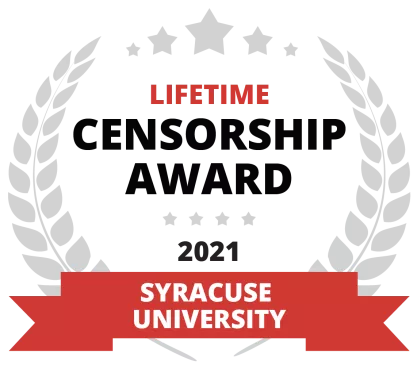
For example, in 2010, its College of Law investigated law student Len Audaer for his alleged involvement with the anonymous, satirical blog SUCOLitis, about life in law school. That same year, the university’s Department of Public Safety threatened discipline against students for wearing “offensive” Halloween costumes.
A brand new decade brought the same old script from Syracuse. In 2012, its School of Education expelled graduate student Matthew Werenczak after he complained on Facebook about a racially charged comment made in his presence by a community leader, an egregious free speech violation that the university deemed a “standard” practice at the time.
Even inaugurating a new chancellor in 2014 did not stem the tide of student rights abuses — Kent Syverud oversaw the dismantling of an entire engineering fraternity and the expulsion of several members in 2018 over their private satirical “roast.” Syracuse claims that the voluntary skit constituted “conduct that threatens the mental health” of others once it was leaked to the public — an assertion so preposterous that it led to lawsuits in state and federal court, where university attorneys attested, under oath, that the school’s speech promises are, in fact, worthless. Syracuse concluded the decade by rejecting a Young Americans for Freedom chapter over its conservative viewpoints, banning all fraternity social activity despite no evidence of misconduct by any of the students, and, most recently, placing a professor on leave for writing “Wuhan Flu or Chinese Communist Party Virus” on his course syllabus.
A fresh, new year affords Syracuse yet another chance to become a better school for free speech — and FIRE stands ever ready to help the university make that happen. However, the day that Syracuse decides to wake up and live out its laudable commitment to students’ rights has yet to dawn. For its unashamed assault on expressive freedoms that has continued despite a pandemic, a new chancellor, lawsuits, and countless FIRE letters, blogs, and press releases, we award Syracuse with the Lifetime Censorship Award, joining fellow oppressors Rensselaer Polytechnic Institute and DePaul University.
While we believe these are the worst schools for free speech, colleges all over the country are routinely bad actors.
For more information on how colleges restrict student and faculty rights, sign up for our FIRE Update. You’ll be the first to know when rights abuses occur. And if you are a student or faculty member facing campus censorship, pull the FIRE Alarm. We’re standing by to protect your rights as we consider contenders for next year’s list.
FIRE, a First Amendment charity, effectively and decisively defends the fundamental rights of tens of thousands of students and faculty members on our nation’s campuses while simultaneously reaching millions on and off campus through education, outreach, and college reform efforts.
- College Governance
- Faculty Rights
- Free Speech
- Halloween
- Litigation
- Press Freedom
- Social Media
- Student Rights
- University of Tennessee - Knoxville
- St. John's University
- Collin College
- Haskell Indian Nations University
- New York University
- Duquesne University
- Frostburg State University
- Northwestern University
- University of Illinois Chicago
- Fordham University
- Diei v. Boyd; University of Tennessee Health Sciences Center: Student Investigated and Punished for Social Media Posts
- St. John’s University: Professor Accused of Violating Bias Policy for Asking Students to Debate Global Trade
- Burnett v. Collin Community College District: History Professor Fired for Criticizing Mike Pence and Her College’s COVID-19 Response Online
- Haskell Indian Nations University: Denial of Hearing After Student Kicked Out of Campus Housing
- New York University: NYU Grossman School of Medicine Media Policy Muzzles Faculty During Coronavirus Crisis
- Duquesne University: Professor Suspended for Discussing Impropriety of Racial Slur in Class
- Frostburg State University: Administration Retaliates Against Student Journalist’s Critical Coverage by Dreaming Up Harassment Investigation
- University of Illinois Chicago: Investigation into Professor for Referencing Racial Slur on Law Exam
- Fordham University: Student Banned from Campus, Placed on Probation After Instagram Photo Commemorating Tiananmen Square Massacre
Recent Articles
FIRE’s award-winning Newsdesk covers the free speech news you need to stay informed.

AI is new — the laws that govern it don’t have to be

Defending free speech: FIRE and Substack partner to protect writers in America

Brown University targets student journalist for sending DOGE-like emails
